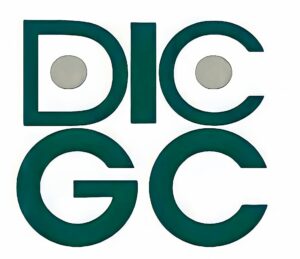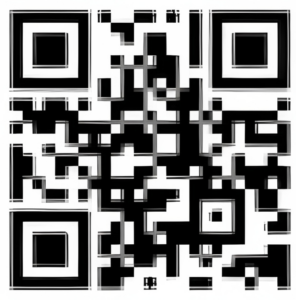The Inland Mutual Arrangement Scheme (IMAS) was formulated in the year 1958 by K.S.C. Apex Bank Ltd.
Objectives
Issue of demand drafts.
Issue of mail transfers and telegraphic transfers.
Collections of Cheques/Bills etc. by member banks in Karnataka on other member banks such as State, Central and Urban co operative banks and on their Branches in Karnataka.
K.S.C. Apex Bank Ltd. is administering the Scheme and the advisory committee is being constituted for monitoring/reviewing the activities of the scheme.
The members of the advisory committee include:
1)Managing Director of K.S.C.Apex Bank Ltd., as Chairman and representative of Apex Bank
2)3 members from D.C.C. banks
3)3 members from Urban Co-operative Banks and from Karnataka State Co-operative Banks’ Federation -1 member.
The advisory committee members shall meet once in a quarter.
All D.C.C. Banks and Urban Co-operative Banks and their branches, seeking admission to become members of IMAS should apply with K.S.C. Apex Bank Ltd.
K.S.C. Apex Bank Ltd., as the sponsored Bank of the said scheme, has laid down certain rules and regulations for the working of the IMAS and modifications of the scheme. It communicates to the member banks and its branches regarding admission/withdrawal of the scheme and circulates the specimen signature of the authorized officials to all the member banks to sign the DDs. It gives the decision over any dispute that may arise under the said scheme. It makes arrangements to convene reconciliation meetings of all the member banks for speedy elimination of pending entries. Apex Bank gives guidance, education, and training programmes to all the member banks about the working of the IMAS. All the member banks under IMAS should maintain their Current Account with the head office of K.S.C. Apex Bank Ltd. They should also maintain books of records and registers and they must reconcile their accounts from time to time with their account at Apex Bank level.
Admission of the Banks
The membership of the scheme is open to all Co-Operative Banks registered under The Karnataka Co-operative Societies Act and coming under the Purview of Banking Regulation Act 1949.
The bank should have been functioning for a period of at least three years and should be a member of the local clearinghouse and in deserving cases, the Apex Bank may even consider enrolling banks that have been functioning for one year as members.
The bank should have maintained a Current Account with the head office branch of K.S.C. Apex Bank Ltd.
All DCC banks, Urban co-operative banks and their branches are eligible to become members of the IMAS Scheme, in which case the minimum working capital of the banks should be Rs. 150 Lakh.
There should not be continuous defaults in the maintenance of the cash reserves ratio and liquid assets as required under section of Banking Regulation Act 1949.
The Audit Classification of the bank should be ‘A’.
An Urban Co-operative bank having working capital of Rs. 500 Lakh can admit 5 members and a bank with more than Rs. 500 Lakh can admit 8 members.
Application enclosures include Form No. 1 and Form No. 2 for admission of banks and its branches respectively. Resolution of Board of Directors, along with competent authority empowering their officials to sign DD, advices on behalf of the banks should be included in the enclosures.
Specimen signatures of the authorized officials should be enclosed.
Latest audited balance sheet/profit and loss account/RBI/NABARD/ inspection reports should be enclosed.
A copy of the byelaws, latest annual reports and copy of RBI License should be included.
The admitted members are grouped into 3 categories and they should maintain fixed deposit and security deposit depending upon their group. Please Click Here to download a PDF document of the group details.
There are no admission/annual membership fees. The DDs, Cheques Books will be supplied by The Apex Bank Ltd. The concerned banks will meet the cost of the printing of DD books, advices. The admitted member banks/branches of the IMAS will be allocated code numbers by K.S.C. Apex Bank Ltd., for easy identification and transactions.
Withdrawal/Removal from Membership
Member banks should submit a letter (Form No. 3) 2 months in advance of the proposed date of withdrawal.
A copy of the resolution of the Board of Directors for withdrawal quoting the reason and also a letter of understanding to honour the DDs drawn on them by the member banks prior to the actual date of withdrawal.
The Board of Directors of K.S.C. Apex bank Ltd. is the competent authority to remove any bank from membership of IMAS and the Managing Director of Apex Bank Ltd., is the competent authority to remove any branch of the member bank.
K.S.C. Apex bank Ltd. shall have the right to suspend/dismember any member of IMAS by giving 30 days prior notice indicating the reasons thereof if the bank is persistently defaulting in the maintenance of the funds or not adhering to the directives of the IMAS.
Issue and Honouring of DD
All member banks shall draw MICR DDs/cheques on K.S.C. Apex Bank Ltd., Head Office Branch only. In other centers, as far as possible, DDs should be drawn on a member of the local clearing house. DDs should be written neatly in English with carbon sheet kept below the DDs and signed by 2 signatories. Alteration, if there is any, should be tested with full signatures with there code number allotted. Punching of the cages should be done to prevent fraudulent alteration of the amount of the DDs. The issuing bank should punch the number of the amount in figures on the exact cadge.
Safety stickers may be pasted on the DD amount in figure to avoid any alterations.
Limit for issue for Group ‘A’ is Rs. 5 Lakh, for Group ‘B’ it is Rs. 3 Lakh, and for Group ‘C’ it is Rs. 1 Lakh. The limits indicated are for aggregate of the DDs to be issued in a day by one member on the other bank. The drawing power of a bank under Group ‘A’ shall be Rs. 5 Lakh per day, under Group ‘B’ Rs 3 Lakh per day and under Group ‘C’ Rs. 1 lakh per day.
Cancellation of DD
The issuing bank should obtain a letter from the purchaser of the DD and intimate the paying bank and the paying bank on receipt of the letter (Form 5) must verify if the DD has already been paid, if not, stop payment should be noted and intimation should be sent to the issuing bank.
Mail Transfer and Telegraphic Transfers
A member bank can issue a mail transfer for crediting to the account of a customer at another member bank.
Telegraphic transfer includes transfer of funds by TT through SBI/SBM/SBH/ HDFC. The bank sending the TT should record the details of the TT sent in a TT register. The pending items of the TT should be followed up promptly by the concerned bank.
Collection of Cheques and Bills
The Cheques and Biills drawn on different centers can be collected through a member bank at par. The proceeds of the Cheques tendered by the customers are to be credited to their accounts and unpaid instruments should be returned immediately.
The collecting bank/branch on realization of Cheques/Bills shall send the realization advice (Form No. 9) to the K.S.C Apex Bank Ltd. for credit to the account.
Maintenance of Current Account
Each member bank should maintain a current account with the head office branch of K.S.C. Apex Bank Ltd. and all transactions under IMAS should be done through this account. The member banks should maintain sufficient balance in order to meet the daily transaction under the scheme and Overdraft facility of not less than Rs. 20 Lakh on the security of fixed deposits with the head office branch of K.S.C. Apex Bank Ltd. The interest applicable to clean OD shall be charged at the prescribed rate. If any member bank avails OD without sanction limit continuously or exceeds the limit sanctioned for long periods, K.S.C. Apex Bank Ltd. has the right to remove such members from IMAS after giving prior notice.
Each member bank should maintain DD issue registers, DD cancellation registers, stop payment registers, Bills for collection registers and TT issue registers. K.S.C. Apex Bank Ltd. shall conduct reconciliation meetings of all the member banks every quarter to eliminate the pending entries.






